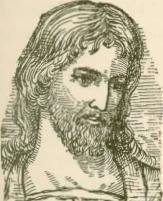CHRISTIAN CIVILIZATION. 39
languages, Greek and Latin, were closely allied. This close intermingling of the two nations gives propriety to the combined title of Grivco-Roman civilization.
The intellect of the Romans was like their bodies, stout, plodding and heavy set. The delicate and perfect chiseling of the nostrils in the Greek nose indicates refinement and sensitiveness of the intellect. The common Roman nose was less finished at the end; its possessor desired knowledge for the sake of power and conquest rather than for its nobler uses. Aggression and self-defense were the faculties that gave character to the Roman nose. The master magician, Daniel, might well represent ancient Rome as a diverse beast, a compound of bear, lion and wolf, with great iron teeth.
After rising to its meridian splendor as a great world-power, Rome itself sank in the luxury gotten from the spoils of its warlike robberies. Its great international roads were only extended warpaths. And its policy of unity between nations was summed up in two words-police and taxes.
In the reign of Constantine, 325 A. D., the empire was officially Christianized. From that time on, through a thousand years, the Roman political power declined and fell, and side by side with this decline, rose the power of Religious Romanism, not less stern, aggressive, and bent on a world's conquest.
In her long career Rome had emblazoned on the historic record her share of great names, Cato, Cicero, Julius Cxsar, Pompey, Horace, Virgil, Augustus and the rest. In civil engineering and in the arts of language and oratory they left enduring and worthy monuments of their genius.
THE CHRISTIAN CIVILIZATION
planted its roots in the fertile soil of the Greek and Roman. Here it received the abundant endowment of literature, of art and of wealth. It started forth in the direction of spiritual life and culture, of universal brother
_ hood and peace. It held out
the brilliant promises of a king
doln of universal righteousness on this earth. Yet the Christian Church made no serious and persistent attempts to fulfil the noble promises of the Hebrew prophets and of Christ. In its long reign it turned aside from all these and gave us instead its list of dogmas, sects, poverty, charities and selfish monopolies !
Christian teachers built up elaborate systems of theology in place of a system of life. The church became an Egyptian sphinx, with riddles for doctrines. Its head was indeed human, but its body was a beast. Had Christian teachers accepted in good faith the teachings of Christ and the prophets, how widely different would have been the development of modern Europe !
Christianity became master of central and southern Europe, of western Asia and of north Africa, the wealthiest and most civilized parts of the world. What did it show for all this ? It brought forth the Middle Ages, a thousand years of intellectual stupor, of moral twilight and of social degradation.
We may well ask "If Christianity can be called successful when, after nearly two thousand years'
